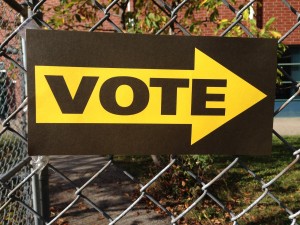 Modern democracy is at work in Europe, with major, potentially disastrous, consequences.
Modern democracy is at work in Europe, with major, potentially disastrous, consequences.
In Britain the deadline for voting registration in the EU referendum was last midnight, when the registration site crashed under the weight of last-minute registrations. There are already calls for an extension of the deadline, or the result of the vote might be considered illegitimate. The result, the polls say, is currently, too close to call.
Last week saw the publication, in the BOE ( the Boletin Oficial del Estado ) of all candidacies for the 2016 Spanish general election. The official start of campaigning is on Friday (10th June) with the election on 26th June. It’s the second vote in six months.
The PP, the former ruling party, is worried that its scandal-strewn recent history will impact upon its showing at the ballot box, but it is still the party riding highest in the polls. It’s chances could be improved, if anything, by the internal divisions on the left. PSOE has rejected any electoral pacts or alliances with Podemos and its IU ( Izquierda Unida or United Left ) allies, now together being called Unidos Podemos ( United We Can ). Some of PSOE’s regional branches e.g. in Valencia, wished to make alliance and set about doing so, only to reluctantly agree to national dictat and withdraw from a pact.
The Spanish political press is currently focusing on the left. Will joining with the (mostly) Communist IU alienate the more centrist  Podemos supporter? Doubtful, if current polls are to be believed. Unidos Podemos is in second place, ahead of PSOE, which has slumped to 20%. But, if PSOE compromise and join an anti-austerity platform a cross-left coalition could rule. But then would it, when faced with the financial strictures which attend European bail-out packages, be forced, like Syriza in Greece, to back down and accept austerity? Or is Spain, rather like the banks, too big to be allowed by its European partners to fail?
Podemos supporter? Doubtful, if current polls are to be believed. Unidos Podemos is in second place, ahead of PSOE, which has slumped to 20%. But, if PSOE compromise and join an anti-austerity platform a cross-left coalition could rule. But then would it, when faced with the financial strictures which attend European bail-out packages, be forced, like Syriza in Greece, to back down and accept austerity? Or is Spain, rather like the banks, too big to be allowed by its European partners to fail?
Democracy calls the neo-liberal financial establishment’s bluff ( AKA democracy fights back )? This could be a high-risk strategy, but it’s already being considered.
In Britain we had a referendum on our membership of Europe. Now we have another, though back in 1975 it was rather different. Not least in campaigning, which is becoming ever more strident, abusive and even more careless of truth.
 So far this week Boris Johnson, widely considered to see leading the Brexit campaign in terms of an opportunity for personal advancement, as opposed to principle, has been tackled on various falsehoods e.g. ‘Turkey is joining the EU’ – it isn’t ( though it would like to ) – and ‘£350 million per week is cost of EU to GB’ – incorrect, states the national custodian of statistics, and deliberately misleading. Boris obfuscated. He, like other leading Brexiters, has grasped the fact that telling the truth, or otherwise, doesn’t seem to matter. Much of the electorate expects politicians to lie. They do it brazenly, like Trump. Are we living in a post-truth political world? It’s what parts of the British press have been working in for some time.
So far this week Boris Johnson, widely considered to see leading the Brexit campaign in terms of an opportunity for personal advancement, as opposed to principle, has been tackled on various falsehoods e.g. ‘Turkey is joining the EU’ – it isn’t ( though it would like to ) – and ‘£350 million per week is cost of EU to GB’ – incorrect, states the national custodian of statistics, and deliberately misleading. Boris obfuscated. He, like other leading Brexiters, has grasped the fact that telling the truth, or otherwise, doesn’t seem to matter. Much of the electorate expects politicians to lie. They do it brazenly, like Trump. Are we living in a post-truth political world? It’s what parts of the British press have been working in for some time.
Not all of the British media, however. I recently explored the BBC site. In tone it is somewhat reminiscent of ‘Blue Peter’* in answering  questions from the general public, but it also produces ‘Reality Check‘. This examines claims from both sides of the debate as to factual accuracy. It explodes many of the Brexit claims, but, unsurprisingly, cannot give definitive ‘rulings’ on many issues. Things are, like life, messy. Which doesn’t help the Remain side, which has to rationally defend the status quo rather than damn it and claim things will all be different if we leave ( but not say quite how ).
questions from the general public, but it also produces ‘Reality Check‘. This examines claims from both sides of the debate as to factual accuracy. It explodes many of the Brexit claims, but, unsurprisingly, cannot give definitive ‘rulings’ on many issues. Things are, like life, messy. Which doesn’t help the Remain side, which has to rationally defend the status quo rather than damn it and claim things will all be different if we leave ( but not say quite how ).
One interesting question is whether or not MPs could vote against any exit from the single economic market, even if the Brexiters win the referendum – there is a pro-Remain majority in the House of Commons of 454 MPs to 147. And there is always the possibility of the break up of the United Kingdom to consider – the SNP has stated that it wishes Scotland to remain in Europe ( and is supported by a majority of Scots ) and it would pursue another independence vote if Brexit won. And the small matter of the instability which a British exit might cause across a continent where populist rhetoric, usually of a right-wing nature, is gaining support in France, the Low Countries and even Germany ( and let’s not mention Poland and Hungary ).
The most recent polls in the EU Referendum show Leave as in the lead by 2%. I hope they’re wrong.
If you enjoyed reading this article you might also enjoy Who Rules Spain? Erm…. A new sort of politics?
*A popular children’s TV programme.


 RSS – Posts
RSS – Posts
2 responses to “Democracy”